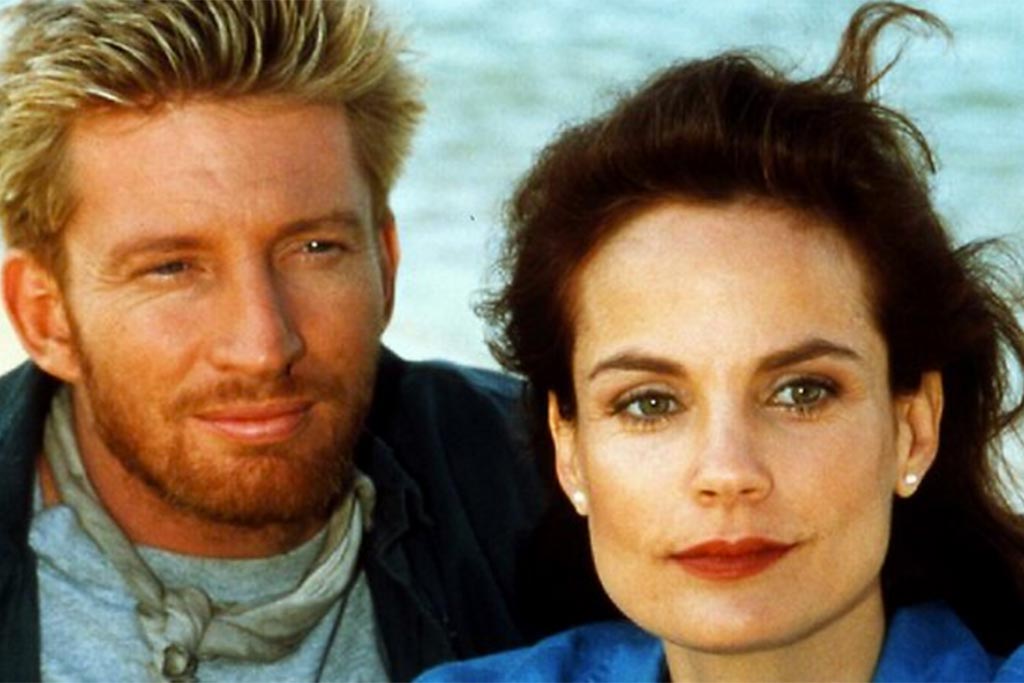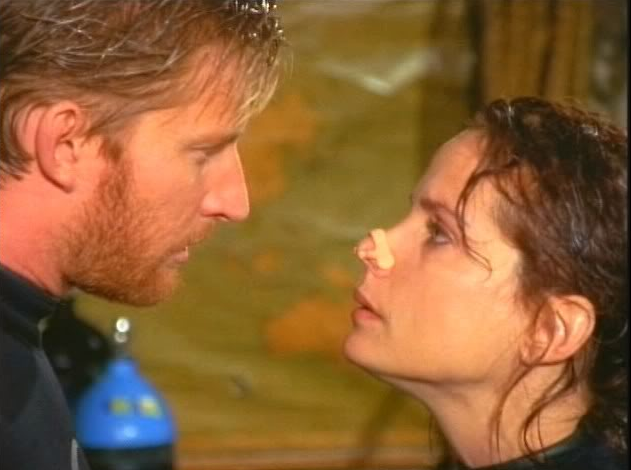Remembering ‘SeaChange’ 15 Years Later: A Nostalgic Interview With Co-Creator Deb Cox
The final episode aired 15 years ago today.

Maybe you were too young. Perhaps you had cooler things to do on a Sunday night. But chances are, if you were breathing in Australia in the late ‘90s, you were at least aware of SeaChange: the ABC-produced show that ran for three glorious seasons from 1998-2000.
Today marks 15 years since the end of one of Australian TV’s most popular shows (SeaChange is the joint record-holder of most Most Outstanding Drama Series Logies, along with The Secret Life of Us and Love My Way). And after rewatching it recently, I’m here to tell you that it’s still really, really good.
The combination of great writing, unpretentious literariness, the seizing of a cultural moment, the distinctly Australian vibe, and the laugh-out-loud humour makes it maybe one of our best. I interviewed Deb Cox, one of the show’s creators, to find out more about where the show came from and why it’s made such an impression on Australian culture.
Don’t Wanna Live In The City: Why We Love SeaChange
SeaChange is the story of Laura Gibson (played by Sigrid Thornton), a tenacious corporate lawyer whose entire life implodes in one day — though it’s apparent that things have been disintegrating without her noticing for years. From here, she decides impetuously that she must return to the last place she and her family were happy: the fictional seaside town of Pearl Bay (set in Barwon Heads and St Leonards on the Bellarine Peninsula in Victoria).
She decamps with her reluctant teenage kids, leaving her husband awaiting trial for his shady business dealings after the revelation that he’s also been sleeping with her sister. Laura takes up the post of magistrate of the town, where she has the delicate task of trying to become an accepted part of the community while also sitting in judgment on its oddball inhabitants. She finds new romance; first with laconic heartthrob Diver Dan (David Wenham in his breakout role), and later with the sexy foreign correspondent Max Connors (William McInnes).
Each episode has a satisfyingly nuanced theme, and Laura — once a snobbish big city powerbroker — learns more about the ambiguities of truth and justice from the more humble residents of Pearl Bay than she ever did in the world of corporate law. It’s also — still — hilariously funny; a fact Deb Cox says is largely down to her co-creator, Andrew Knight (also known for his work on Fast Forward and The D_Generation).
“We used to joke that I did the heart, and he did the humour,” she says.
It’s a great character setup, but the show is much deeper than a straightforward sitcom, and much more nuanced than the kind of overwrought drama we often see on Australian television. “It seems ridiculous now, because there are lots of similar shows, but aside from Hamish Macbeth and Northern Exposure, there was nothing like it around at the time,” says Cox, from outside a gig at a Mullumbimby music festival, near her North Coast home. “It was odd that we often had to defend the fact that it was funny. To write a story that’s purely dramatic with no humour is such a weird edit of life — terrible things happen but humour modifies it. At the time, it was groundbreaking.”
Cox credits Sue Masters, the executive producer of the show and then-head of drama at the ABC, with identifying the compelling core of the show: leaving the rat-race for a simpler existence. “She said, ‘You’ve hit on the zeitgeist’ — [there was] pressure for everything to get bigger and better, and to make more money. There was a yearning to return to a better quality of life.”
In the original concept for the show, Cox explains, Laura wasn’t going to be a judge at all — a surprising fact, considering how central her position as magistrate is to the plot. “I just had a woman who was dropping out of being a high achiever and… going to run a hotel, [but] Sue [Masters] didn’t feel safe without the revolving door of, say, a legal, medical or police drama. It felt too nebulous to her, so she and Andrew cajoled me into making her the magistrate.”
Something Rich and Strange: SeaChange 15 Years On
What struck me most when re-watching the show, is how forward-thinking it seems politically. Coming as it did in the first flush of the Howard years, was the show in some ways a response to the prevailing politics of the time, functioning like The West Wing did for the Bush era?
“It’s inevitable when you write that your politics infiltrate what you do — [SeaChange] was very anti-economic rationalism,” Cox says. “But when you write about politics in terms of a character, it doesn’t polarise audiences. We had the most conservative people who loved SeaChange. When I first pitched the show, it was called Tropical Fever and I went to a commercial network that shall remain nameless, and they said ‘Oh, we understand the Jellys [slimy wannabe real estate developer Bob, played by John Howard, and his perfect-seeming family] — but there aren’t enough normal people in the show.’ I just said ‘no way’ and we took it to the ABC. To me, it’s clear who the people with the right ideas are.”
The show is also nicely feminist — it aces the Bechdel Test more or less every episode, but more importantly presents a broad array of nuanced women with rich inner lives. It turns out, that was no accident. “For me, it was about the women,” Cox says. “[At the time] it felt like women had been cheated: it was too hard to have it all. Everyone knew about men and their mid-life crises and I thought, if women can be high achievers, why can’t they have mid-life crises too? I was bored of perfect, heroic women.” Adding to the progressive vibe, there was also a recurring gay character — hardly a regular occurrence for Australian TV at the time.
Another fascinating aspect is the so-called ‘SeaChange effect’ that reportedly swept Australia in the wake of the show’s success. It felt like you couldn’t move in the early noughties for op-eds about Boomers retiring to the coast or the country (a “tree-change”) as a direct result of the show; the effect has even got its own Wikipedia page.
Life imitated art again when the boatshed in Barwon Heads — a central location in the series, secretly earmarked for the development of a 100-seat restaurant by shonky developer Bob Jelly — actually got knocked over to make way for the development of a 100-seat restaurant. The demolition in turn was incorporated into the storyline.
“Real estate agents picked up on it and it became a fashionable lever for them to put up prices in coastal towns,” Cox says. “I don’t know if I feel good about inflating property prices!” In St Leonards, the ‘SeaChange Estate’ even has streets named after the characters (Gibson Grove, Jelly Junction, SeaChange Way and Pearl Bay Passage).
I apologise to Cox for taking up her time talking about such an old job — after all, she’s moved on to many shows since then, including most recently Miss Fisher’s Murder Mysteries. “No! It was a really lovely show to work on,” she replies. “It was one of those shows where you felt so lucky to work on it with all the right people, it was great co-writing it with Andrew — the cast all enjoyed it, it was in the heyday of the ABC. I look back on it with a lot of nostalgia.”
Us too, Deb. Us too.
–
Vivienne is a travelling freelance writer/editor and co-founder of Taylor Hermione & Co, a not-for-profit organisation that promotes safe relationships, consent and gender issues to teenagers in Australia. She tweets at @VivEgan41
